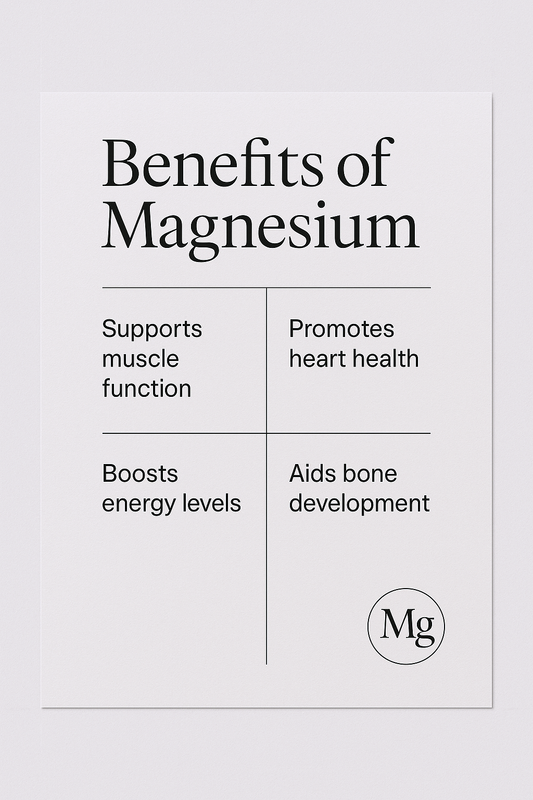Vitamins That Help With Depression and Anxiety You Should Know
Introduction to Mental Health
Mental health is a crucial part of overall well-being, affecting millions of people worldwide. Depression symptoms can be especially challenging, often interfering with daily life and making it difficult to function. While prescription medications and therapy are standard treatments for depression, many people are exploring dietary supplements as a way to support their mental health. A healthy diet that includes essential nutrients—such as B vitamins, omega 3 fatty acids, and vitamin D—can play a significant role in maintaining mental health and easing symptoms of mild or moderate depression. For some, adding dietary supplements to a balanced diet may offer extra support, especially when dealing with moderate depression. However, it’s important to remember that supplements should not replace prescription medications or professional treatment. Always consult a healthcare provider before starting any new supplement, especially if you are experiencing depression symptoms.

Mental Health
Mental health issues, including depression and anxiety, affect millions of people worldwide and can be caused by nutritional deficiencies - specifically, lack of key vitamins like B vitamins and vitamin D which play a big role in brain function and mood regulation. Vitamin supplements are often considered as part of a holistic approach to mental health.
A healthy diet and dietary supplements like omega 3 can reduce depression symptoms and support mental health by providing brain nutrients.
Understanding the link between nutrition and mental health is key to developing effective treatment plans that includes dietary supplements and better mental health. Nutritional supplements can be an important adjunct to traditional therapies for depression and anxiety.
Some supplements like St. John’s Wort have been used to treat mild or moderate depression, with clinical trials evaluating its effectiveness for depression, but consult a healthcare professional before taking any supplements, as certain supplements may require professional guidance due to potential interactions or side effects, especially if you’re taking prescription meds or have a history of digestive disorders.

Nutritional Deficiencies
Nutritional deficiencies including vitamin deficiency can worsen depression symptoms and mental health issues so it’s important to identify and address these deficiencies through diet changes or supplements. Magnesium deficiency is also common and can contribute to depression and anxiety symptoms.
B vitamins especially folic acid and other B vitamins play a big role in brain function and mood regulation and deficiency in these vitamins can cause depressive symptoms; lower vitamin levels, such as vitamin D or C, are associated with increased risk of depression.
Vitamin D deficiency is common in people with depression and supplementing with vitamin D can help alleviate depression symptoms especially in those with low vitamin D levels.
Omega 3 found in fish oil supports brain health and can reduce inflammation which is often associated with depression and other mental illnesses. Conditions like celiac disease can impair nutrient absorption and increase the risk of deficiencies that contribute to depression.

Omega 3 Fatty Acids
Omega 3 fatty acids, especially EPA and DHA, have anti-inflammatory properties and support brain function, influencing brain functions related to mood and cognition, making them a natural remedy for reducing depression symptoms.
Numerous studies have shown that omega 3 fatty acids can treat depression, especially mild or moderate depression, by supporting brain health and reducing inflammation.
Fish oil supplements are rich in omega 3, but make sure to choose high quality supplements to get maximum benefits and minimize side effects. Chia seeds are a plant-based source of omega-3 fatty acids, providing an alternative for those who do not consume fish.
Omega 3 can also reduce anxiety symptoms and other mental health issues, making them a great addition to your treatment plan.

Herbal Supplements for Depression and Anxiety
Herbal supplements like St. John's Wort (Hypericum perforatum) are traditional herbal remedies that have been used for centuries to treat depression and anxiety. Existing studies, including clinical evidence, support the use of St. John's Wort for mild to moderate depression, though results may vary and medical supervision is important. However, herbal supplements can interact with prescription meds including birth control pills and may increase the risk of serotonin syndrome so consult a healthcare professional before taking any supplements.
Saffron extract is another herbal supplement that has shown promise in reducing depression symptoms, especially in mild or moderate depression, by supporting brain health and mood regulation.
Herbal supplements, as natural remedies, should be taken under professional guidance and individuals should be aware of potential interactions with other meds and side effects.
Brain Food
A healthy diet that includes lean meat, fish and whole grains can provide brain nutrients and reduce depression symptoms. Fat free milk and other low fat dairy products can also provide important nutrients for brain health.
Folic acid and other B vitamins are found in animal products and fortified foods and deficiency in these vitamins can cause depressive symptoms. Choosing low fat dietary options is recommended to support overall mental well-being.
Omega 3 found in fatty fish can reduce inflammation and support brain health. Adequate intake of these nutrients affects mood and cognitive function.
A diet rich in fruits, vegetables and whole grains can provide brain nutrients and antioxidants that support brain health and reduce depression risk. Vitamin C, found in many fruits and vegetables, supports brain health and acts as an antioxidant.
Safety Considerations and Interactions
While vitamins and dietary supplements can help support mental health, it’s important to be aware of potential risks and interactions. Many supplements can interact with prescription medications, sometimes reducing their effectiveness or causing adverse effects. For example, St. John’s Wort can speed up the breakdown of certain drugs, making them less effective. Supplements that affect neurotransmitters, such as 5-HTP and SAM-e, should not be combined with antidepressants without medical supervision, as this can increase the risk of serotonin syndrome—a potentially serious condition. Additionally, vitamin K can interfere with blood thinners, and taking high doses of vitamin E may increase bleeding risk. Because many supplements can have unexpected effects, it’s essential to inform your healthcare provider about all the supplements you are taking. This helps ensure your treatment plan is safe and effective, and reduces the risk of adverse effects or dangerous interactions.
Lifestyle Changes
- Lifestyle changes like regular exercise and stress management can reduce depression symptoms and support mental health. Regular sun exposure helps the body produce vitamin D, which is important for mental health.
- A healthy diet and dietary supplements can also support mental health and reduce depression risk. Combining these lifestyle changes with other strategies can help fight depression.
- Get enough sleep and practice relaxation techniques like meditation and yoga to reduce stress and anxiety.
- Avoid substances that can worsen depression symptoms like alcohol and drugs is also important for good mental health. These lifestyle changes can ease depression symptoms and improve overall well-being.
Integrating Supplements with Treatment
Supplements can be a great addition to a comprehensive depression treatment plan for depression and anxiety, but should not replace prescription meds or therapy.
A healthcare professional can help you develop a personalized treatment plan that includes dietary supplements and lifestyle changes. Specific supplements may be recommended based on your individual nutritional needs and health conditions.
If you are taking antidepressants, it is important to consult your healthcare provider before adding supplements, as some combinations may interact or require careful monitoring.
Regular monitoring and follow up appointments can ensure supplements are effective and safe.
A comprehensive treatment plan should also include lifestyle changes like regular exercise and stress management to support mental health and reduce depression risk. However, be aware that certain supplements may pose a high risk for some individuals, especially when combined with medications.
Conclusion and Next Steps
Depression and anxiety are complex mental health issues that require a comprehensive treatment plan, including dietary supplements, lifestyle changes, and therapy.
Certain amino acids are essential for neurotransmitter production and play a key role in supporting mental health. Vitamins like D and B12 affect specific areas involved in mood regulation in the brain, such as regions responsible for neurotransmitter production and emotional balance. Supplements like omega 3 and vitamin D can reduce depression symptoms, support mental health, and help improve mood while addressing mood changes associated with depression and anxiety.
Some supplements are available in synthetic form, such as folic acid and vitamin B12, and should be used with professional guidance to ensure safety and effectiveness. Taking higher doses of supplements, especially zinc or other nutrients, can pose risks and should only be done under medical supervision.
Consult a healthcare professional before taking any supplements, especially if you’re taking prescription meds or have a history of digestive disorders.*














